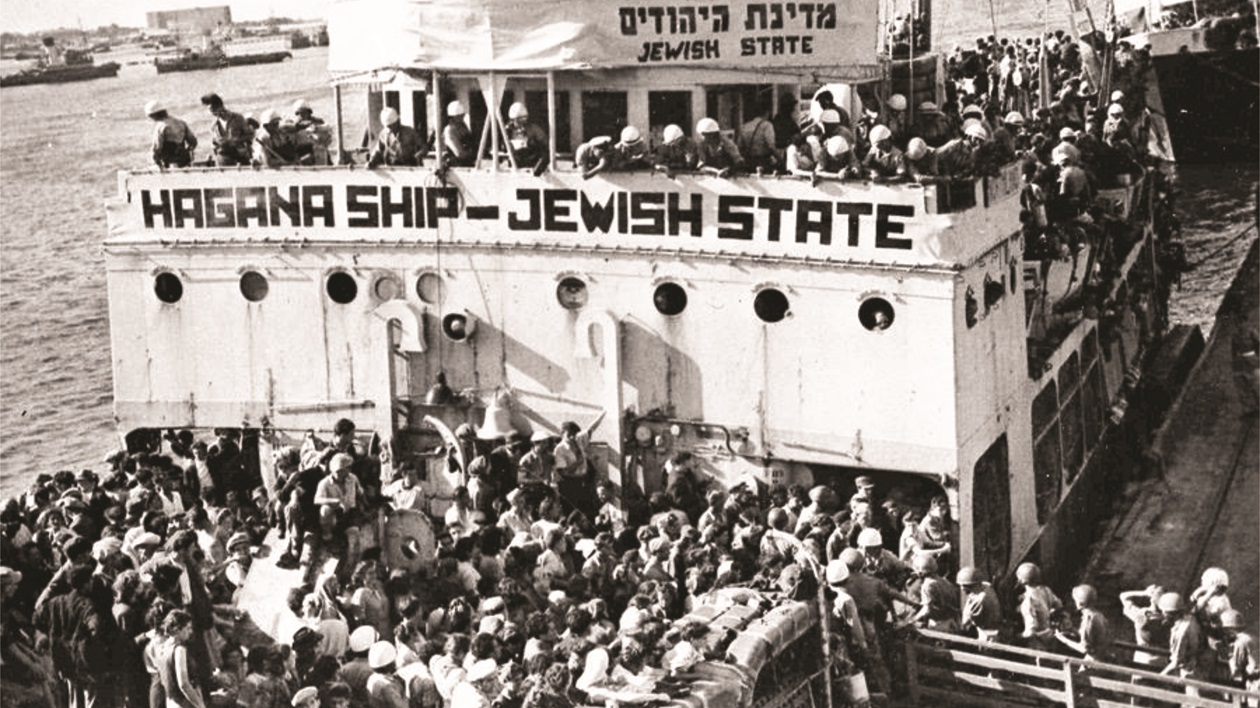Behind the scenes of geopolitical conflicts and intrigues, Zionism emerged as a key movement. This movement not only changed the Middle East’s landscape but also shaped global political dynamics. It was not just a dream for a homeland. Zionism became a catalyst for global conflict. From the expulsion of people to digital espionage that shook the international order, its actions continue to raise questions. Is this a humanitarian struggle? Or is it a geopolitical chess game to control global narratives?
Zionism is a word that always triggers emotion, debate, and a long history. To understand its meaning, we must go back to the past. About 3,000 years ago, the Children of Israel made the Land of Canaan, now called Israel, their home. They succeeded after escaping the Pharaoh’s clutches in Egypt. Jerusalem became a center of worship, and they built the First Temple under David and Solomon. Unfortunately, this glory was not eternal. In 587 BC, Babylonia destroyed the Temple. They also exiled the Children of Israel. However, the nation of Israel returned to that land, an event they called “Sifat Zion,” or the return to Zion. Jewish civilization rose again. However, in 70 AD, the Romans came. They destroyed the Second Temple and began a mass expulsion. As a result, Jews scattered worldwide for 2,000 years in exile.
The Birth of Modern Zionism Amid Crisis
At the end of the 19th century, a wave of antisemitism was rampant in Europe. This wave expelled many Jewish people from Russia to France. Amid this suffering, an Austrian-Jewish journalist named Theodor Herzl wrote his dream. In his 1896 book, The Judenstaat, he envisioned a fortified homeland for his people. Although the traditional Orthodox Jewish elite rejected this idea, modern Zionism was born from it.
A year later, in 1897, Herzl gathered hundreds of leaders at the first World Zionist Congress in Switzerland. There, they set a grand goal: to establish a national home for the Jewish people in Palestine. Interestingly, Herzl had also considered Argentina or Uganda. This suggested that political pragmatism outweighed the sacred bond to their ancestral land. In the early 20th century, traumas in Europe deepened Zionism’s roots. Events like the massacres in Russia and the Alfred Dreyfus affair in France fueled the desire for independence.
During World War I (1914), Britain eyed Ottoman territory. Amid this turmoil, Herbert Samuel, a Zionist member of the British cabinet, urged support for Zionist ambitions. His goal was to gain the sympathy of the global Jewish community. On November 2, 1917, a letter changed everything. That letter was the Balfour Declaration. British Foreign Secretary Arthur Balfour wrote the letter to the Zionist banker Lionel Walter Rothschild. It promised a national home for the Jewish people in Palestine. This was not merely an act of sympathy. It was a strategic solution that benefited both the Zionists and London in a game of geopolitics.
The Proclamation of Israel and Its Lasting Impact
The world was shaken by the Holocaust. This event claimed six million Jewish lives at the hands of the Nazis between 1939 and 1945. The horror stirred the global conscience. It strengthened the Zionist call that without a homeland, the Jewish nation would not be safe. After World War II, moral pressure grew. The newly formed UN became Zionism’s main stage. They moved quickly with the support of the United States and the Soviet Union. In 1947, they drafted a resolution to partition Palestine. The resolution handed 56% of the holy land to the Zionists and 43% to the Palestinian Arabs.
On March 10, 1948, the Zionist Hagana militia launched Plan Dalet. This plan aimed to secure the territory that the UN had given to the Jewish state. When David Ben-Gurion proclaimed the establishment of Israel on May 14, 1948, the Zionist world cheered. However, the Arab world saw this proclamation as a continuation of colonial oppression.
The next day, Egypt, Jordan, Syria, Lebanon, and Iraq attacked. This attack triggered the 1948 Arab-Israeli War. During the battle, about 700,000 Palestinians lost their homes. Many of them were directly expelled. Others fled the violence. In the Palestinian narrative, they call this expulsion the Nakba, or catastrophe. By 1949, Israel controlled 78% of the Palestinian territory, far exceeding the UN Resolution 181 allocation.
21st-Century Zionism: Technology and Dominance
Israel emerged as a regional power. In 1949, they founded the Mossad, an intelligence agency that operates in the shadows. The Mossad’s goal is to protect Israel regardless of national borders. In 1952, they formed Unit 8200, part of military intelligence. This unit collects information through signals and cracks codes. They also counter enemy spies, conduct cyber warfare, and monitor suspicious activity. Unit 8200 became one of the most advanced intelligence agencies in the world.
In 1954, the American Israel Public Affairs Committee (AIPAC) emerged as a new Israeli weapon. AIPAC is a political group that uses diplomacy to ensure the U.S. always supports Israel. The Mossad has launched famous missions. They hunted down Adolf Eichmann, a key architect of the Holocaust, in Argentina in 1960. This operation was not just about seeking justice. It showed that Israel could reach its enemies beyond its borders.
Israel continues to have strong U.S. support. The U.S. has used its veto power at the UN over 40 times to protect Israel. The U.S. has also provided military aid totaling 310 billion US dollars, making Israel a key U.S. intelligence partner. Israel has become a significant arms exporter. Companies like Elbit Systems sell drones and missiles to countries from India to the Gulf states.
In 2016, the world was shocked by Pegasus, Israeli-made spy software. The NSO Group sold it to several countries. Pegasus can hack phones and steal data. Amnesty International and The Guardian exposed this scandal in 2021. They stated that authoritarian governments used Pegasus to hunt journalists and activists. This fueled accusations that Israel was facilitating human rights violations.
New Alliances and the Impact of Conflict
The Israel-Palestine conflict continues. It fuels a fire that burns across the Middle East. The Arab world is fragmented, while global powers profit. In 1979, Egypt shocked the world with the Camp David Accords. Egypt signed a peace treaty with Israel under U.S. mediation. But Gaza remained sidelined. Three years later, Israel invaded Lebanon. Its goal was to destroy the Palestine Liberation Organization (PLO).
In 1987, the anger of the Palestinian people exploded in the First Intifada. That same year, Hamas was born in Gaza. Hamas combined nationalism with Islamism. Later, Fatah sought a peaceful path. In 1993, the Oslo Accords offered hope for Palestinian autonomy. However, the Second Intifada erupted in 2000. This Intifada was marked by an Israeli forces’ incursion into the Al-Aqsa Mosque in East Jerusalem.
Zionism continues to evolve. Now, it is a technological and geopolitical power of the 21st century. Israel is known as the “Startup Nation.” Tel Aviv is a hub for cybersecurity technology innovation. Veterans of Unit 8200 lead many startups. In 2020, the United Arab Emirates (UAE) normalized relations with Israel through the Abraham Accords. The UAE pursued economic benefits and an alliance with the U.S. For the Palestinian people, this stance was a betrayal. The Abraham Accords also involved Bahrain, Sudan, and Morocco. Fear of Iran drove these agreements.
From a dream for a homeland to a global power, Zionism has had a long and complex journey. Its impact is felt across every aspect of global politics and security. A fundamental question remains: is this merely about survival, or a step toward domination?






